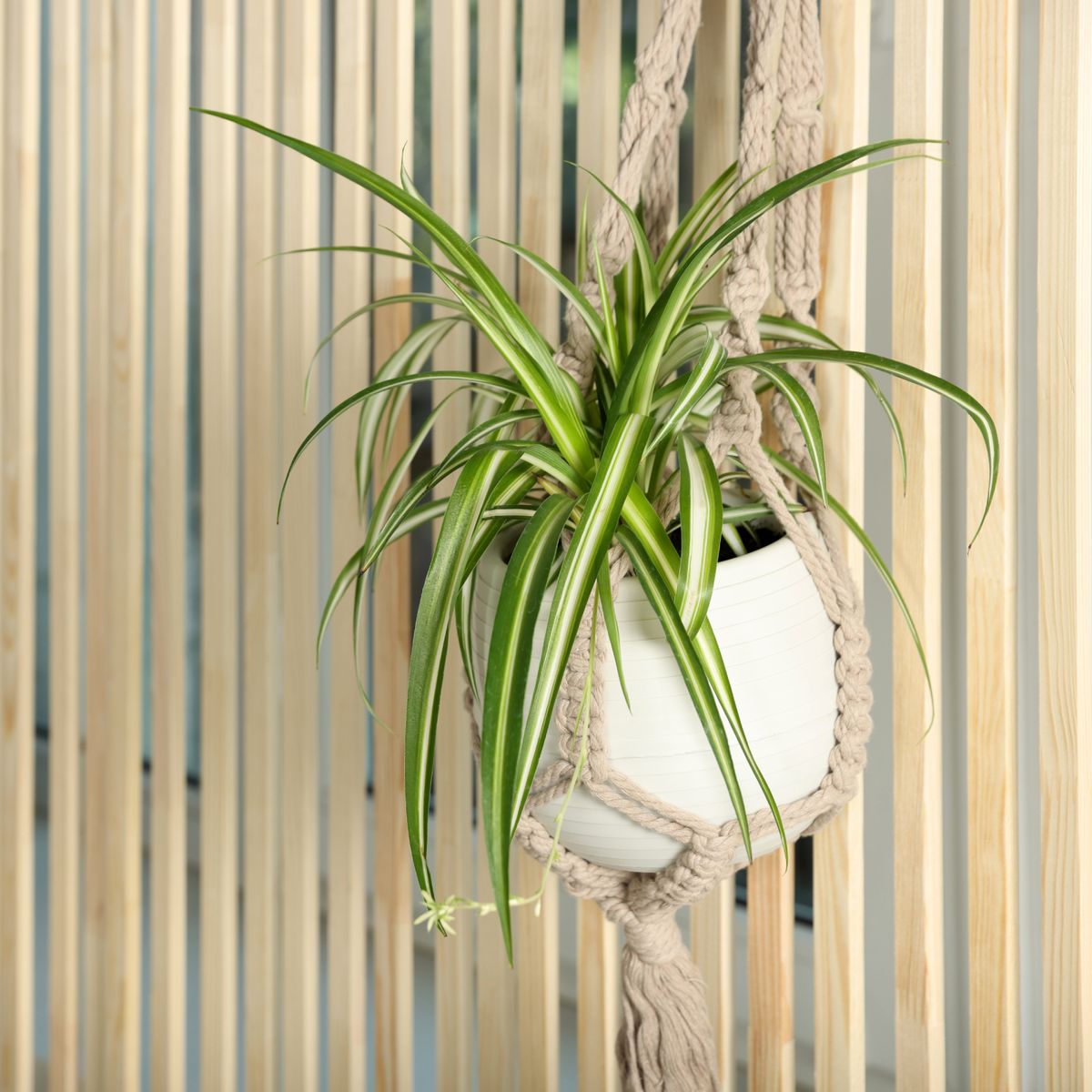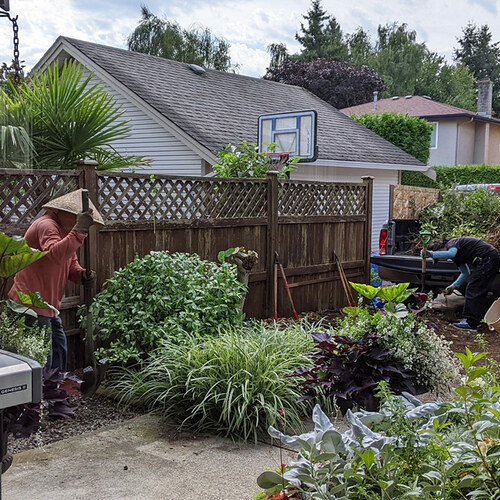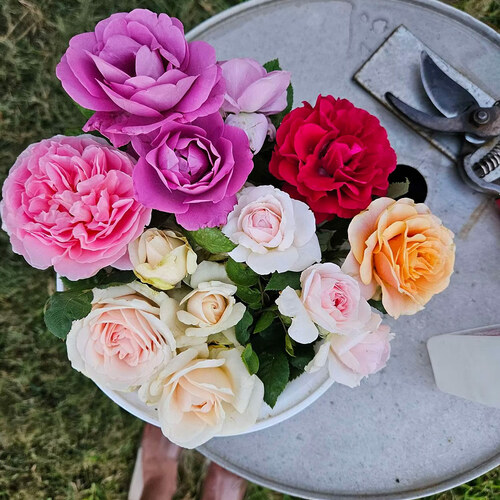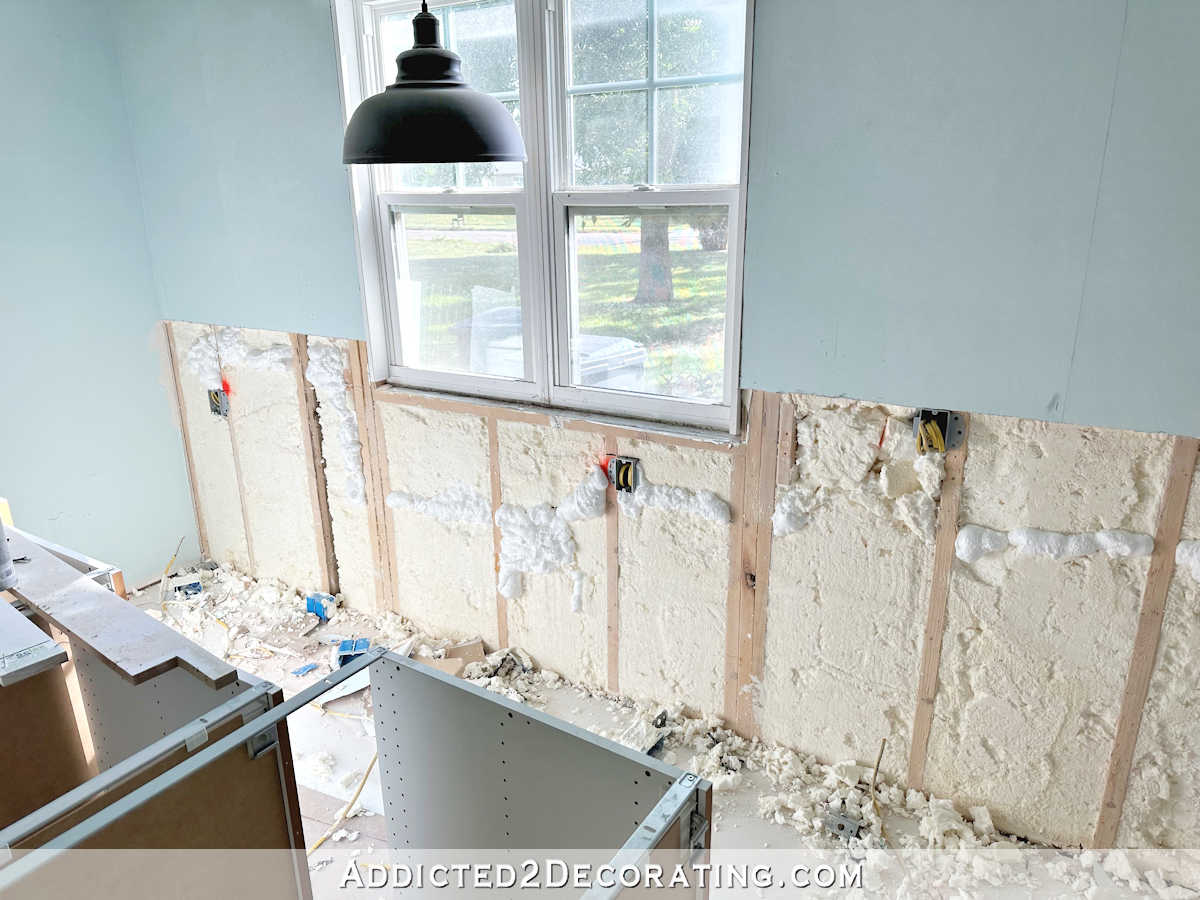Roses are not only attractive to humans but also pests and diseases. Many homeowners like going the natural route using products like neem oil.
But can you use Neem oil insecticides for rose pests and diseases? Have you wondered how often to spray neem oil on roses for optimal pest control? Let’s explore the topic.
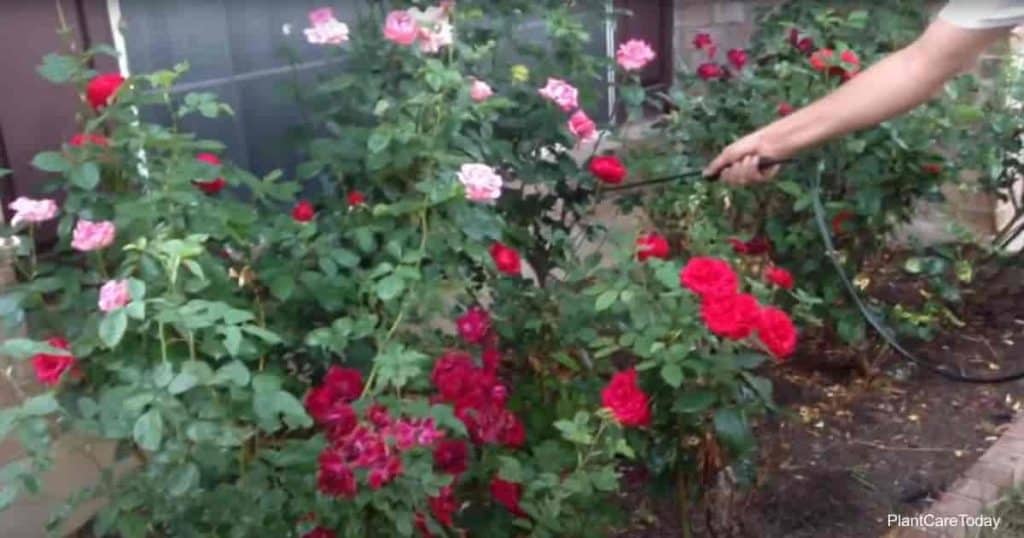
Members of the Rosa genus are some of the most beautiful and highly cultivated garden staples. They are also some of the most demanding.
Is Neem Oil Safe For Roses?
Neem oil is one of the safest and least toxic treatments for pests and fungi. If a rose is growing in hot, direct sunlight, neem oil is still a viable treatment option. It is very important to spray the roses at the right time. Before treating a plant with neem oil for the first time, testing the product on a single leaf is always a good idea.
Neem oil is labeled for use on all types of plants, including:
- Houseplants
- Garden flowers
- Landscape plant
- Vegetables and herbs
Rose plants are beautiful, and the rose hips and petals are edible and beneficial.
One thing all roses have in common besides being attractive to humans. They carry equal attraction to a wide range of plant pests and diseases.
Can You Use Neem Oil On Roses As A Remedy?
Pesticides or insecticides have been the traditional remedy for rose infestations.
Is Neem oil good for roses? Yes! Neem oil is an excellent home remedy for aphids on roses. It is a natural pesticide that gets rid of spider mites, scale, and other garden pests.
Unfortunately, this natural pesticide can also harm beneficial insects, pollinators, and ladybugs.
It can also render the rose varieties themselves toxic to humans.
Neem oil on roses is becoming one of the leading natural treatment methods. Other natural solutions include hydrogen peroxide and diatomaceous earth. But is Neem safe or effective enough for use on roses?
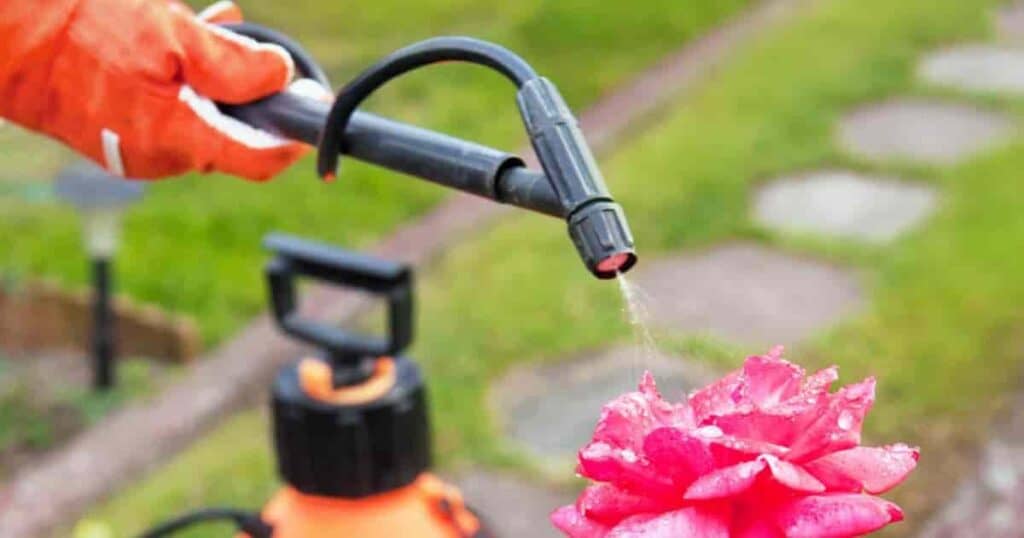
Using Neem Oil For Rose Pests?
Neem oil is not only an effective pest treatment for your roses. It also is used as a fungicide against:
- Fungal diseases
- Leaf spot
- Sooty mold
- Rust
- Black spot (see note below)
- Powdery mildew
- Leaf Blight
- Anthracnose
Treating black spots on roses is not recommended when the temperatures are high. Only spray when 85° degrees or less outside, and be wary of oil buildup on the rose leaves.
Neem oil is great for smothering soft-bodied insects like:
- Aphids
- Leaf hoppers
- Rose slugs
- Thrips
- Whiteflies, and more!
Does Neem Oil On Roses Leave Residue?
It leaves no residue, so using roses in recipes is perfectly safe after treatment.
What Pests Will Neem Oil Kill?
There are many common and uncommon plant pests that neem oil can control. The estimate is somewhere between 200 and 600 confirmed species. This includes some fungal and bacterial infections.
Neem oil does not harm birds, beneficial insects, and soil-loving creatures like:
- Bees
- Butterflies
- Lady beetles
- Earthworms
Warning: Neem oil can affect bees and other pollinators if they come in direct contact with a new treatment. Use care when treating your roses.
Related: Is Neem Oil Safe for Bees?
Some of the most common pests include:
There are also unconfirmed reports of success when fighting slugs and snails.
When Should I Use Neem Oil Concentrate
Always apply neem oil spray for roses around dusk or dawn. This is when pollinators are least likely to be active.
A rose treated in the early morning will be safe for bee visitation when the local hive begins its rounds.
For larger rose plantings, it may be more convenient to use a hose-end sprayer with a reservoir for neem oil concentrate calibrated to apply the oil at a rate of about 1 percent.
Neem oil degrades quickly once applied. It lasts only about an hour on foliage, although neem drenches will remain potent for up to three weeks.
You need to reapply a neem spray every 2 days for 10 to 14 days to ensure an infestation is eliminated. A drench will only need reapplication once or twice per month.
Choosing the Right Neem Product
Buy Neem oil (Neem Tree Oil) on its own or as part of a commercial blend.
Commercial blends often contain additional chemicals like insecticidal soap. Make sure to check the label directions before purchasing.
Meanwhile, pure neem oil is widely available and used on its own or as part of a homemade mix.
Avoid using a homemade mixture containing pesticides or insecticides:
- If you plan on consuming the flowers
- Have a large beneficial insect population
These mixes leave behind a toxic residue.
You only need a .5 to 2% percent dilution of neem oil to treat roses. Add a touch of Dawn dish detergent to make the neem oil even more effective.
How To Apply Neem Oil To Roses: Foliar Spray vs. Soil Drench
How Do You Mix Neem Oil for Roses As A Foliar Spray
The foliar spray is generally made using two tablespoons per gallon of water.
How to Apply Neem Oil Spray to Roses
- Mix neem oil with water according to the instructions on the package. A common dilution ratio is 2 tablespoons of neem oil per gallon of water.
- Pour the neem oil mixture into a spray bottle and shake well.
- Spray the neem oil mixture onto the rose plant’s leaves, stems, and flowers.
- Make sure to cover both the top and underside of the leaves.
- Repeat the application every 7-14 days, or as needed.
Neem oil dissipates fast and leaves no residue behind but effectively kills any pests (but not the eggs) it comes in direct contact with.
How To Mix Neem Oil for Roses As A Soil Drench
A soil drench is poured around the plant’s base using four teaspoons of neem oil per gallon.
How to Apply Neem Oil Drench to Roses
- Mix neem oil with water according to the instructions on the package. A common dilution ratio is 4 tablespoons of neem oil per gallon of water.
- First, water the rose plant thoroughly with plain water.
- Pour the neem oil mixture directly onto the soil around the base of the rose plant, making sure to saturate the soil.
- Allow the neem oil mixture to soak into the soil for several hours before watering again.
- Repeat the application every 21 days, or as needed
Soil drench treatment lasts longer. Some of the neem oil is absorbed by the plant, where it poisons insects attempting to feed on its leaves or pierce its surfaces without harming pollinators and beneficial insects.
Using Neem Oil to control bugs and plants pest is a smart, eco-friendly solution. Always follow the labeled directions.



